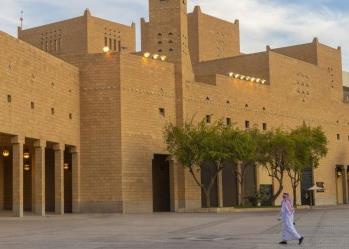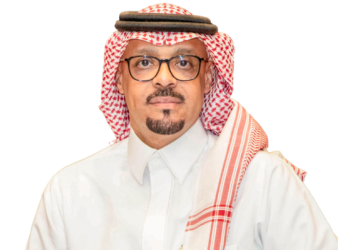
In three years, the stretch of desert between the port of Ruwais and Habshan in Abu Dhabi will be transformed with the first railway line of the UAE
Career history
September 2009 to date CEO of the federal rail company Union Railway. Bowker is overseeing the development of the UAE’s $11bn national freight and passenger railway
September 2004-September 2009 Vice-chairman of British Waterways. Bowker was on the board between 2004 and 2009 and was vice-chairman from 2008 to 2009
September 2006-July 2009 Group CEO of National Express Group
2005-2006 CEO of Partnerships for Schools
December 2001-September 2004 Chairman and chief executive of Strategic Rail Authority
September 2000-December 2001 Group commercial director for Virgin Group of Companies
Over the summer, the UAE’s federal rail agency Union Railway invited construction companies to bid for a contract to build a trial section of railway track in the Abu Dhabi desert.
At first, the 200‑metre-long test track seems like a small almost inconsequential project, but it is crucial to the UAE’s $11bn rail plans. No one has built a railway across large shifting sand dunes before and engineers need to work out exactly how it can be done before the UAE can move ahead with its ambitious plans.
Pioneering scheme
The man leading Union Railway’s pioneering scheme is chief executive officer (CEO) Richard Bowker. The former head of UK-based transport group National Express arrived in Abu Dhabi in the summer of 2009 to not only develop a first for engineering, but also a first for the UAE. “It’s hugely exciting, because you don’t have the downside of the legacy, plus you’ve got the benefits of the vision and the drive of the UAE and that’s one of the reasons why I’m here,” Bowker says.
There’s pressure, yes, because there are high expectations [for the rail project]
For many, the responsibility of linking the seven emirates of the UAE by rail for the first time – on time and on budget – might seem daunting. Not so for Richard Bowker. “Stressful? I don’t find anything particularly stressful, because I think stress is the easy way to make yourself ill. There’s pressure, yes, because there are high expectations [for the rail project]. It’s very high profile and it’s being done for positive reasons, but pressure is a lot easier to deal with when it’s exciting and being done for the right reasons.”
As the UAE railway will eventually form part of the GCC railway, the notion of transporting goods and services around the Gulf is one that Bowker, along with other industry movers, finds genuinely exciting.
Discussions are also currently under way between the GCC and other Arab countries looking at re-establishing railway through northern Saudi Arabia, Jordan and Syria and on to Europe.
The UAE’s first step to becoming part of this new international rail network will be a 265-kilometre railway in the Abu Dhabi desert for Abu Dhabi National Oil Company (Adnoc). Construction of this line must go ahead if the oil company’s $11bn Shah gas scheme is to progress successfully.
The line will transport granulated sulphur from the oil and gas processing facilities to the port of Ruwais in the Western Region. The first stage of the first phase will see a line built between Ruwais and oil and gas processing facilities at Habshan to transport 10,000 tonnes a day (t/d) of sulphur.
Once the track is extended to processing facilities at Shah in the second stage, the line will be used to transport 20,000 t/d.
High-speed link
Cargo is just one aspect of the railway project. Passenger operations are also planned once the freight line is up and running. One of the most eagerly awaited projects is a planned high-speed link between Dubai and Abu Dhabi.
“We’re studying [it] and doing a big exercise on forecasting what the traffic might be, but it’s one of those projects that genuinely requires a lot of agencies to come together with a plan, such as the RTA [Roads & Transport Authority], DoT [Department of Transport], NTA [National Transport Authority, Union Railway, UPC [Urban Planning Council] and the airports,” Bowker says.
He adds: “If ever there were a railway line to be justified, then the Abu Dhabi-Dubai-Sharjah line is it.”
“It is not a straightforward task and in other [countries] it would be a recipe for complete inaction, but here, it just means it needs organising and its happening. Let’s see where it goes,” he says.
Union Railway has also recently completed the alignment with the RTA for the freight-passenger railway in Dubai.
“As soon as tenders go out on the first bit, we’ll get started on the next, from phase one or phase two. Fujairah and Ras al-Khaimah have potentially tremendous railway opportunities because of the movements of things such as aggregates,” Bowker says.
On the possibility that the railway, when complete, might not prove as popular as the authorities hope, Bowker is adamant that he does not worry. He cites the Red Line of the Dubai Metro as a case study for how rail can be successful in the UAE, with testing on the metro’s Green Line now under way.
Passenger traffic
“I imagine if you went around Dubai and asked people if they could imagine life without [the metro], they’d probably say no. Actually, I can’t. It becomes part of the infrastructure that’s there. It might take a bit of time, but not very long.”
It is true that passenger traffic has gradually increased on the Red Line as its first year of operation came to a close on 9 September 2010. The idea of using rail travel, as opposed to private cars or taxis, has quickly caught on in Dubai – a fact reflected in passenger figures. The number of passengers using the Dubai Metro increased from 54,683 a day in October 2009 to 116,340 a day in July 2010, a leap of 212 per cent.
This is a project on a country scale. So the real challenge is bringing everybody together
Planning aside, Union Railway has so far issued a number of preliminary tenders. One of the first contracts to be awarded will be to carry out a safety, risk, security and independent safety assessment. This contract is due to be awarded in September. Another tender involves carrying out a study into the impact and mitigation of duning sand. This deal was due to be awarded in August, but bids are still being evaluated.
Two other packages relate to systems and rolling stock. Firms submitted expressions of interest for the rolling stock deal on 16 September with bids due to be submitted by 3 October. An announcement on the engineering and design services and project management services is also imminent.
Union Railway is also tendering the advanced works contract, as well as the civil and track works deal, both of which are scheduled to be awarded from January 2011.
Awards should follow the appointment of Swiss bank UBS as the financial adviser in early in September. Bowker says now is the right time to start looking at what the financing options could be and how best to implement them. “There is absolute commitment to make it happen, [Union Railway] has to work to decide what the optimal financial solutions will be. I don’t think it’ll be one, I think it will be a whole range of things and different bits of the network will be done different ways.”
Once funding is in place, Union Railway can focus on the other challenges of building the UAE’s first trans-emirate railway system. Perhaps the most immediate challenge is the environment. The test track will go a long way to overcoming this. It will be built on the low, mobile dunes between Habshan and eastern Mezairaa. The low dunes consist of loose sand and the study will evaluate ways to increase stability and reduce the impact of the wind on sand movement.
The second challenge is internal. Bowker says one of the most pressing issues is ensuring that Union Railway employs people that are fully trained in railway engineering, design and operations. He also stresses the importance of the railway being built by Emiratis for Emiratis.
“A lot of UAE nationals [are] now working as part of Union Railway team. We’ve been very lucky and have been able to attract some really terrific talent, but they are not [yet] fully trained up in the industry. When we start to look at the actual operation of the railway, which we’ve got to start planning pretty soon as we’ll be running trains in 2013, we’ll put in place plans so that it is Emiratis that are running it and leading it going forward,” he says.
To ensure this happens, Union Railway is in talks with the Higher College of Technology and Khalifa University about setting up courses specifically related to developing, engineering and operating a railway.
“It is not just a new railway,” says Bowker. “It is a new industry.”
Bowker says the direct and associated benefits of building the railway far outweigh any challenges Union Railway might face in its development. For the UAE, the railway offers significant benefits to the economy and society through the introduction of a completely new industry for the country and the wider region. There are also advantages in terms of reducing congestion, improving safety and it is more environmentally friendly. Rail is a cost-effective way to move large amounts of aggregates, steel, iron ore and sulphur, as well as large numbers of passengers. One of the major motivations behind the project is to improve the transportation of freight regionally and beyond.
Strong vision
The positive aspect of developing a railway in the UAE compared with the UK, says Bowker, is while both countries are sophisticated in the way they plan things, the UK is “hamstrung by so much history and legacy”. The UAE on the other hand has the advantage of a strong vision and remarkable drive and ambition to do something that will really add value. He acknowledges that lessons have been learned from his experiences in the UK when he was head of National Express.
“This is a project on a country scale. So the real challenge is bringing everybody together and doing it in an effective way that we will be proud of forever,” says Bowker. “A personal hope is that we can do it in such a way that, when it’s up and running, everybody says we’re very proud of that. I really do hope it will be Emirati leaders running the railway adding real value and that it is run by the people who live here, not by a bunch of people like me.”
You might also like...

Rainmaking in the world economy
19 April 2024

Oman receives Madha industrial city tender prices
19 April 2024

Neom seeks to raise funds in $1.3bn sukuk sale
19 April 2024

Saudi firm advances Neutral Zone real estate plans
19 April 2024
A MEED Subscription...
Subscribe or upgrade your current MEED.com package to support your strategic planning with the MENA region’s best source of business information. Proceed to our online shop below to find out more about the features in each package.








